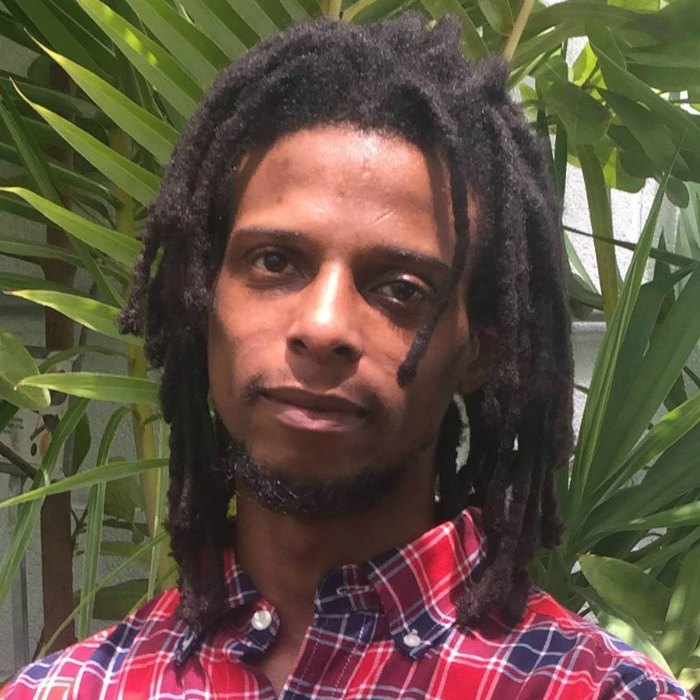HMX Fundamentals
Immunology
Get an in-depth look at how the body fights disease – and how new therapies can help.
Microbial life forms are an ever-present, extremely dangerous threat to our survival, against which the immune system must constantly defend.
In HMX Fundamentals Immunology, you’ll learn about the processes that enable our immune systems to respond to evolving threats, and learn about new, immunology-based disease treatments.
Course Topics
Overview
- Course introduction
- Meet the faculty
- Basic terms and concepts
Innate Immunity and Inflammation
- Sentinel cells and circulating leukocytes
- Inflammatory events and signaling
- The formation of pus
Microbial Recognition and Responses in Innate Immunity
- Pattern recognition receptors
- Innate immune signaling
- The antiviral state
- The complement system
Antibodies – Structure and Function
- B lymphocytes
- Antibody structure and function
- How antibodies can cause disease
Lymphocyte Development and Diversity
- Lymphocyte development
- Clonal selection and expansion
- Differences between B and T lymphocytes
- The generation of lymphocyte receptor diversity
T Cell Activation by Antigens
- The role of dendritic cells
- The lymphatic system and delivery of antigen to lymph nodes
- Adaptive immune activation in secondary lymphoid tissues
- Costimulation and inhibitory signaling
- Antigen presentation
T Cell-Dependent B Cell Responses
- T Cell activation of B cells
- The germinal center reaction
- Isotype switching and affinity maturation
Helper T Cells
- Helper T cell functions
- Helper T cell subsets
- The role of helper T cells in disease
Cytotoxic T Cells
- Cytotoxic T cell functions
- Selection and expansion of cytotoxic T cells
- Contraction and memory
- Therapies that target cytotoxic T cell functions
Failures of the Immune System
- Immunodeficiencies
- Mechanisms of tolerance and loss of self-tolerance
- Autoimmune diseases
- Allergic diseases
Immunology-Based Therapy of Diseases
Download the Immunology course outline
Course Instructors

Andrew Lichtman, MD, PhD
Professor of Pathology, Harvard Medical School
Senior Pathologist, Brigham and Women’s Hospital
Why do you think it’s important for aspiring health care professionals to learn immunology?
Over the past several decades, there has been an enormous increase in the scientific evidence for a central role of the immune system in a wide range of common human diseases, including those that cause the most morbidity and mortality worldwide. Many of these disorders had traditionally not been viewed through the immunology lens, such as cancer and cardiovascular disease, but that is all changing now. Therefore, a basic understanding of the components, functions, and mechanisms of the immune system is really an essential foundation for anyone planning to train for a career in healthcare.
What do you want students to take away from this course?
On completion of the course, students should understand the fundamental ways the immune system protects us, and appreciate how deficiencies, excesses, or mistargeting of immune responses contribute to disease. Furthermore, students should be aware of the many ways the science of immunology has already been successfully translated into clinical medicine. The basic knowledge gained from this course should facilitate students’ continued course-based and self-learning of immunology.
In your HMX Fundamentals Immunology course, students learn about the role of immunology. What does the science behind immunology and infection say about reducing transmission of SARS-CoV-2 (the coronavirus involved in the pandemic)?
Reliable community epidemiologic data and in-hospital infection control data accrued over the duration of the pandemic have unequivocally shown that transmission of SARS CoV-2 is significantly reduced by mask wearing and social distancing. Conversely, analyses of the incidence of new cases after social and public events conducted without mask-wearing or distancing clearly show that such behavior significantly increases the risk of infection with SARS CoV-2. The major way mask-wearing works is by protecting other people from viruses released from the mask-wearer, and to a lesser degree protecting the mask-wearer from virus released by others. So mask-wearing needs to be adopted by a majority of people in a community in order to decrease viral spread.
Furthermore, a majority of infectious disease epidemiologists have carefully addressed the question of herd immunity, and agree that the only way to achieve this without disastrous increases in COVID-19 associated morbidity and mortality way beyond the already dire numbers is through a widely adopted vaccination program, and not by intentionally encouraging infection of the general population. We still do not know if SARS CoV-2 infection results in effective long-lived immunity, and several studies of immunological parameters in infected patients suggest that the viral infection actually impairs strong antibody reposes needed for protective immunity. This impairment may be related to systemic inflammatory events that accompany the infection, and this would not likely be a problem for vaccine effectiveness.

Shiv Pillai, MD, PhD
Professor of Medicine and Health Sciences and Technology, Harvard Medical School
Immunologist and Geneticist, Center for Cancer Research, Massachusetts General Hospital
Director, MMSc in Immunology Program, Harvard Medical School
Associate Program Head, Graduate Program in Immunology, Harvard Medical School
Why do you think it’s important for aspiring health care professionals to learn immunology?
The immune system protects us from infections and cancer in a very exquisitely precise way. Most human diseases result from some loss of this precision. Sometimes the immune system is overwhelmed by an infection or a tumor. On other occasions the immune system aberrantly or over-exuberantly responds to innocuous environmental molecules or microbes – or to self-structures – and this results in a loss of immune regulation that results in disease. Understanding immunology has allowed the prevention of infections by the use of vaccines, has helped the medical world develop the ability to transfuse blood making modern surgery possible, has allowed transplantation to become a reality, and has led to rational treatments for allergies and autoimmune diseases, and what are likely the first real cures for cancer. Many of the therapies of the future will likely be derived from an even better understanding of immunology and how the loss of immune regulation leads to specific diseases. No other field of basic science is so intimately connected to the pathogenesis of disease or to treatment.
What do you want students to take away from this course?
Students should understand the underlying concepts of how the immune system works and how knowledge of immunology has already impacted the understanding and treatment of a range of human disorders.
In your HMX Fundamentals Immunology course, students learn about the role of immunology. What does the science behind immunology and infection say about reducing transmission of SARS-CoV-2 (the coronavirus involved in the pandemic)?
Most infections are acquired by breathing a pathogen in, or touching an infected surface, or ingesting something containing a pathogenic microbe. We now know that SARS-CoV-2 is acquired largely by two routes, but primarily by inhaling droplets containing the virus. These droplets could even come from an asymptomatic person opening his or his mouth to speak to you when in close proximity. The other way the virus spreads is by touching a recently infected surface and then touching your face – the virus then gets into you. That is why regular handwashing with soap is important.
The reason why mask-wearing is a socially responsible thing to do is that the chances of an infected but asymptomatic or symptomatic person transmitting the virus dramatically decrease if he or she wears a mask. Although some protection is afforded to the wearer, a mask is not worn primarily to protect the wearer but to protect the people around the wearer! If everyone wore masks, transmission would drop dramatically. Young people may be less likely to get very sick generally with this coronavirus, but they are often the source of virus that is transmitted to older people, sometimes members of their own families, who may not end up doing so well. It is younger people who brought the virus into nursing homes with devastating consequences. So wearing a mask is not just good public health, it is what an informed responsible human being should do. It does save lives.
While getting measles or mumps often results in lifelong immunity, coronaviruses in general provide immunity for relatively short periods of time. There is little likelihood of obtaining herd immunity towards any coronavirus from natural infection – this is NOT like measles! Vaccination, when shown to be effective and safe, will be the only way to achieve herd immunity against SARS-CoV-2, but that will depend on a large segment of the population getting vaccinated.
What Learners Say

Allie Hyans
Celgene Corporation / Harvard Business School
“I almost didn’t know how applicable it would be until after I became familiar with the concepts discussed in the course, and now they come up all the time…for my own personal understanding, it’s made a world of difference.”

Siyan Xu
Novartis
“The topics are so well organized, and I think the lectures cover those fundamental ideas very well.”

Ana Castillo Orozco
National Institute of Genomic Medicine (Mexico)
“I have taken a lot of courses online, but this was a very different approach…The disease linkage piece was so important because you could enhance your knowledge based on what you saw. It was so amazing how doctors chose patients that covered the whole concepts that you learned in class, and how they chose a particular patient that fit in the clinical scenario.”

Khalil Ragland
Central Connecticut State University
“I was impressed by the way that each topic was broken down into chunks that you could really understand…you could go through it at the pace that was best for you.”
Interested in further applying your knowledge of the immune system? We also offer advanced courses including:
